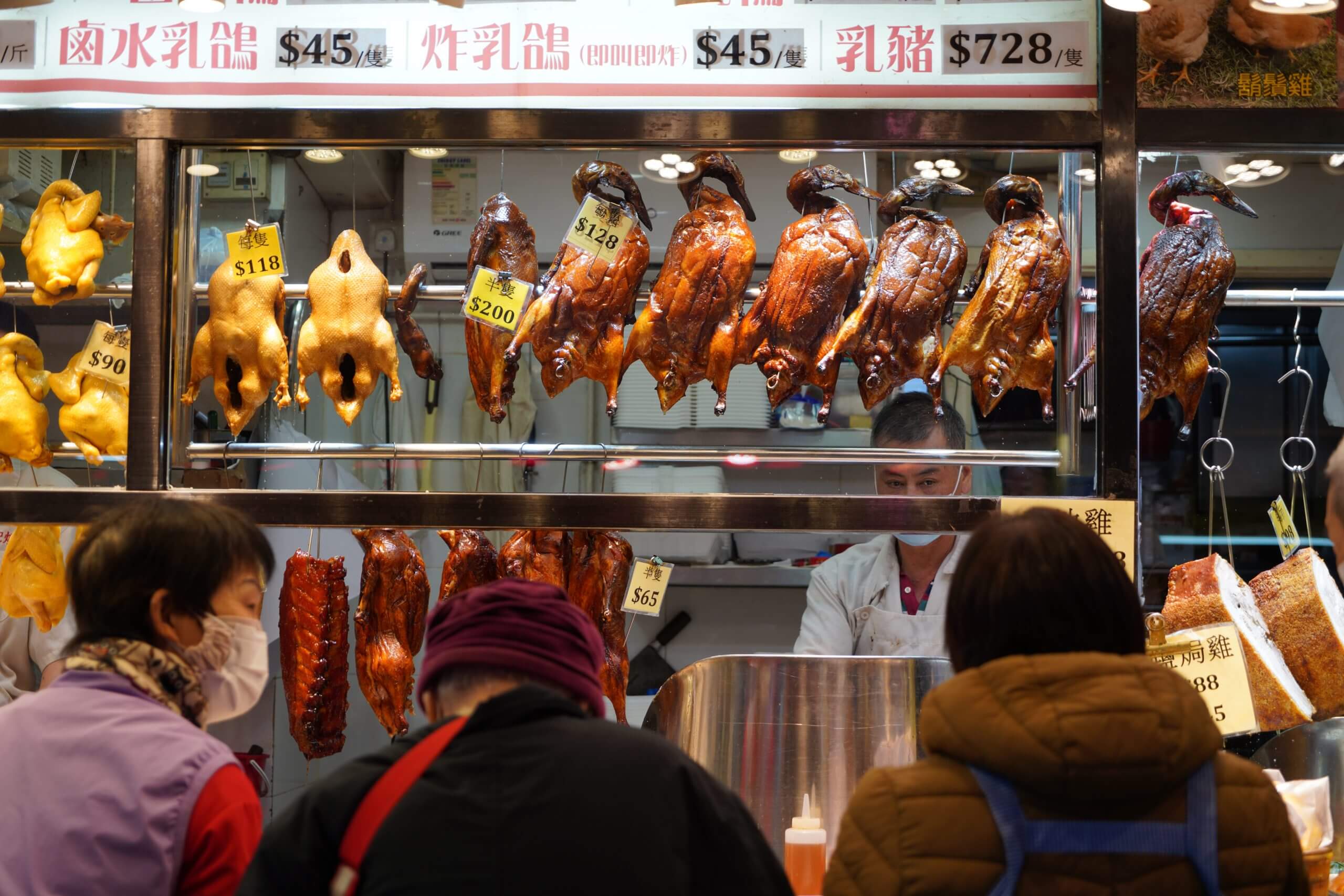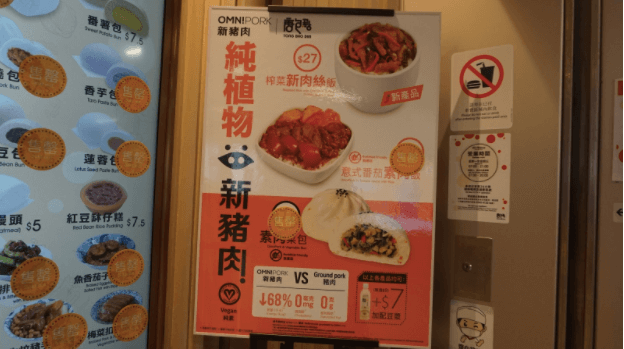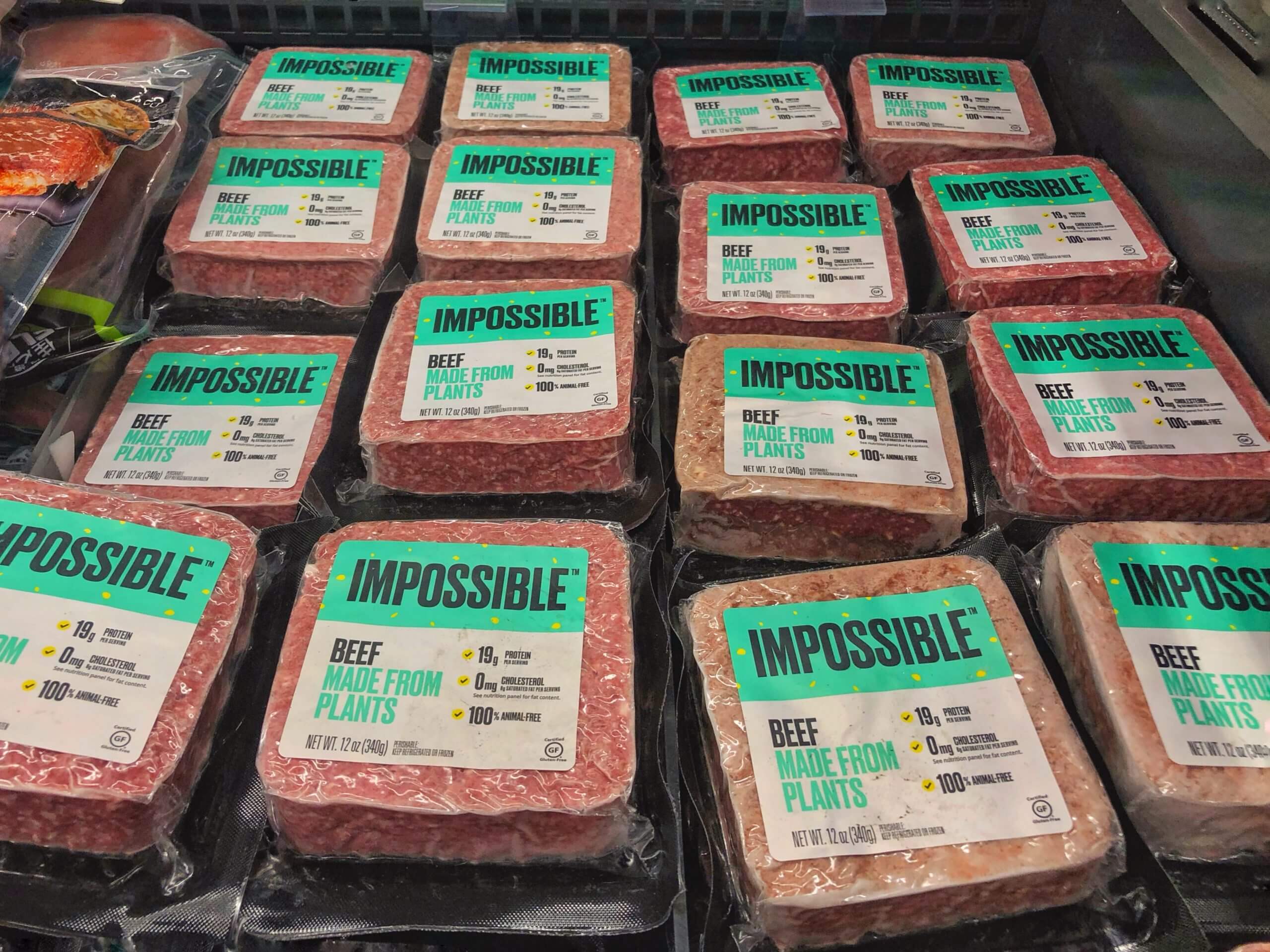Veganism on the Rise in Hong Kong
- By: LAMA Sumnima RaniEdited by: Clara Ip
- 2020-12-16
It's time for another family gathering… Eugenia Chow, a Hong Kong vegan blogger, pushed up a forceful smile and sat in front of a table filled with traditional Chinese dishes with her family. "One of the main difficulties I face with being vegan is the cultural aspect of eating in Hong Kong," said Ms Eugenia Chow. With Hong Kong's traditional food mainly consisting of animal products, she said eating with family is often difficult, especially as a younger member of the family, "It's difficult to be picky with food in front of elders as it may seem disrespectful."
Concerned about the sustainability of eating meat and the effect of animal farming on the environment, Ms Eugenia Chow started an Instagram account three years ago to blog her vegan lifestyle in an effort to encourage more people to start a vegan diet by proving that it is not a difficult task to be a vegan in Hong Kong.
Today, she has more than 8,000 followers on Instagram, alongside a blog and podcast of her own, where she discusses topics such as sustainability and environmentalism. Ever since she started blogging on her social media accounts, more people have asked her for advice on their diets.
Within two years, there was a 50% increase in the number of vegetarians in Hong Kong, according to a 2018 survey conducted by Green Monday, an organization based in Hong Kong that promotes green eating habits.
Ms Eugenia Chow commented that the sudden growth in interest in veganism is because documentaries about animal cruelty have gone viral and people started to be more conscious about their food choices. Another part of the reason is the growing concern on the environment as well as their personal health.
A twofold increase in both the number of Deliveroo's restaurant partners that serve vegan and the demand for vegan food in delivery service compared to the year before, according to the food delivery application's reports in 2020. The sales volume of vegan delivery orders has increased by 20% since January.
The increased interest in meat substitutes could also be because of the zoonotic nature of COVID-19. Ms Jessica Chow, the owner of the first 100% plant-based patisserie in Hong Kong named Bien Caramélisé, said that many of her customers told her that they are cutting down on meat consumption and have become more conscious of their food choices because of the pandemic.

This phenomenon does not only appear in Hong Kong. In the second week of March of 2020 when there were more than 500 daily cases in the United States, vegan consumerism grew by 280%, according to a report released by Nielsen, an American market data company.
In recent years, there is also a growing number of vegan restaurants and businesses opening all over the city. And recently, even McDonald's, who Forbes ranked as the world's biggest fast-food franchise, has also introduced a number of new menus in Hong Kong and Macau that incorporate OmniPork, a plant-based meat.
Even though the pandemic hits the economy hard, there is an increase in vegan restaurants since the COVID-19 pandemic with a total of 104 more vegan venues in the world, according to a research conducted by HappyCow, a vegan food and restaurant guide website.

"It's really good that veganism has gone mainstream and caught people's attention, even big media outlets like Hashtag Legend and Tatler have begun to release articles on greener diets," said Ms Eugenia Chow.
A lot of people assumed that becoming a vegetarian would end up leading to an imbalanced diet, and could even develop electrolyte deficiencies. She suggested those who chose to go vegetarian or vegan should do their research and look for alternative ways to supplement essentials from plants.
Meat is not the only dietary source for protein. Ms Tiffany Cheung, a nutritionist and assistant programme manager at Green Monday, clarified that actually there are several plant-based protein sources, such as nutritional yeast, soy, chickpeas.
Ms Figueiras said that if people have to give up meat, then they have to be provided with a good substitute.

Omnifood is a food tech company that created the plant-based meat OmniPork which is sold at McDonald's. They claimed that their all-purpose plant-based meat is not only nutritionally superior with zero cholesterol and is 100% less saturated fat than ground pork, but it is also environmentally friendly and cruelty-free.
"Omnifoods is not just for vegans, we are targeting everyone," said Ms Tiffany Cheung. She said that omnifood is a good way for people to switch towards veganism without needing a drastic change.
WHO recommends a daily sodium intake of no more than 5 grams a day, OmniPork consists of 340 milligrams per every serving of 100g grams. Ms Eugenia Chow, commented that although healthier than luncheon meat "the amount of sodium in Omnipork's products is concerning".
Ms Jessica Chow pointed out that there are tons of vegan options in Hong Kong but the lack of education in veganism has amplified the inaccessibility of plant-based food in Hong Kong.
She explained that Hong Kong people do not have enough understanding of veganism, so they hesitate to incorporate it into their diets. "Which is why "Mcdonald's new menu is a huge step forward in garnering more attention towards eating sustainably," she added.
"I don't think McDonald's is doing it because they actually care about the animals or the environment," said Ms Eugenia Chow, she chuckled softly. "It's just marketing, they are only doing this to enhance their brand and keep up with the times, but it's still really nice to have options."
《The Young Reporter》
The Young Reporter (TYR) started as a newspaper in 1969. Today, it is published across multiple media platforms and updated constantly to bring the latest news and analyses to its readers.

Survival of food trucks in Hong Kong, difficult but worthwhile

US Traveller seeking help from Facebook Support Group




Comments